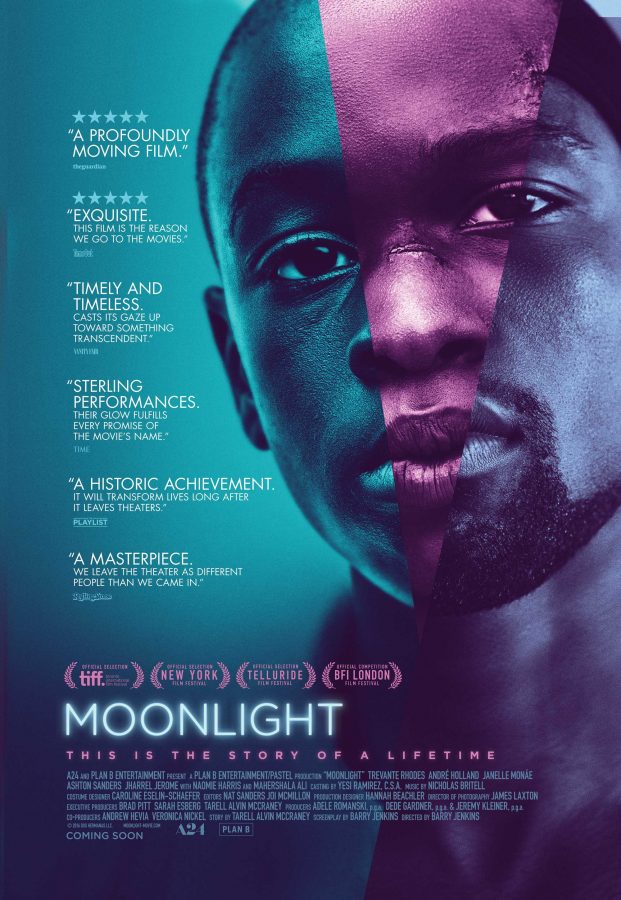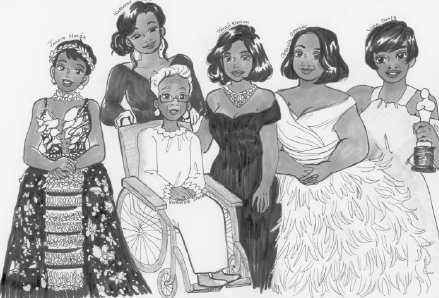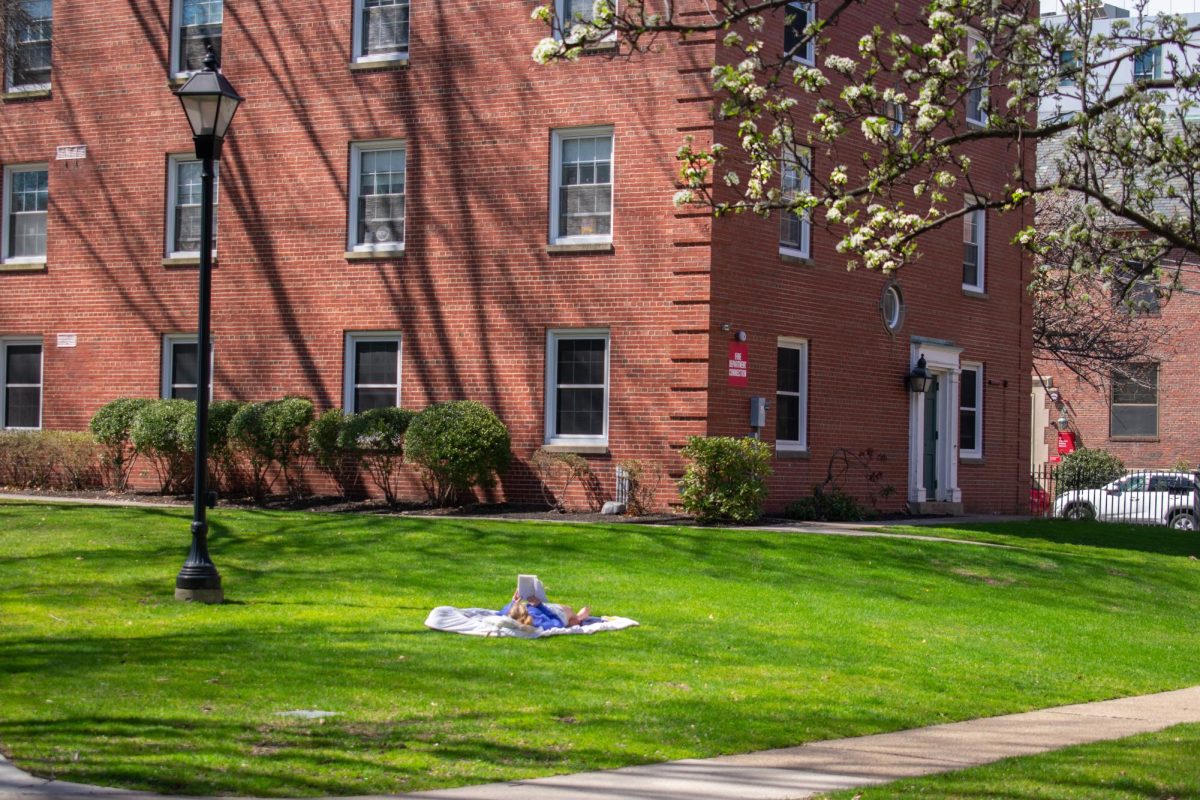By Anonymous
Contributing writer
I am a sophomore student here at Simmons in the 3 + 3 physical therapy program. This week physical therapy students decided to hang up posters that promoted physical activity, alternate ways to add physical activity in your daily routines, and ways to increase your physical fitness. I did not take part in this.

When I saw these posters and read them, I thought it was such a great idea! Being college students, we sometimes have to neglect out exercising and being physically active just to get sleep, do homework, go to class, work, etc…we are busy! I thought the signs were a nice reminder so that if one had to go up a few levels and was about to take the elevator, after seeing the sign one might choose to take the stairs and get a few more steps in the day. Especially as our country is facing an obesity epidemic, helpful reminders to get your body moving are extremely important and can be just the thing for someone who isn’t physically active to remember to move!
Obviously you don’t have to listen to the signs. If I have what feels like 100 lbs of books on my back, I may not do the suggested lunges, or if I broke my leg I probably would not take the stairs. They aren’t for everyone, but they are helpful, healthy suggestions and advice for people who are interested in doing more physical activity and nothing more than that.
While I had a positive attitude towards the signs and what the physical therapy students did, apparently some did not. We are all free to have our own opinion, and while I will respect those whose differ, I want to make mine heard.
One of the controversies raised about these posters includes the claim that they are ableist. I disagree to the fullest extent and here is why: just because something is not available for all to do doesn’t mean that it is ableist. Should students not have access to health advice just because some people aren’t able to follow it? Should students who are learning about the body and physical activity not be able to share what they’ve learned and share with the college something that will improve people’s health?
Just because some physical activities aren’t accessible to all, does that mean those who are able shouldn’t learn ways to improve their health? If those who are opposed to the signs say that the PT students shouldn’t put up signs promoting healthy activities because some people physically cannot, then by the same logic should a school not put stairs in the building if not everyone is able to use them in order to be fully inclusive?
Another problem that people had with these posters is that they were put up during National Eating Disorder Awareness (NEDA) week. There were arguments made that signs promoting physical activity shouldn’t be put up because it felt like they were going against those recovering from and dealing with eating disorders and not in the direction towards self esteem improvement and body positivity. I can’t tell you how much I disagree with this. I will never invalidate someone’s own experience with an eating disorder. Whatever one went through and how they feel about food and physical therapy is their right and I won’t argue with that. Here is my opinion on it.
I had an eating disorder in middle school going all the way through college. There were times when I didn’t think I’d ever survive it and after multiple therapists and going to treatment I finally was able to come out the other side, alive and healthy. Despite the many therapists, treatment centers, and nutritionists I saw, the one thing that really helped me recover was learning how to treat my body right through giving it food that would nourish it and help me grow, and performing physical activity with the mindset that was about getting my body strong and seeing what it could do, not viewing it solely as a calorie-burning machine. When I saw my body could do all these amazing things through sports I valued it more and began to nourish it so I could get stronger, and it eventually became a positive feedback loop.
Many treatment centers, including the one I went to, incorporate physical activity and fitness into their programs. Physical activity plays a very important part in the recovery of eating disorders. Exercising is part of a healthy lifestyle and whether you are recovering from an eating disorder, dealing with a chronic illness, or just a busy college student it’s important to learn about physical activity and get moving.
Again, I won’t ever invalidate someone’s experience with an eating disorder and recovery. I understand if exercise is still triggering, uncomfortable, or if one has negative feelings about it. However, while it may not be the best thing to see someone that promotes physical activity when one might have had issues in the past, it’s not right for that to prevent information about the benefits of healthy physical activity and exercise to people who could benefit from them.
The physical therapy students who put the signs up have been pressured to take these signs down. Again, I had no part with the signs, but if I were one of those students I hope they would not. Physical therapy students have every right to promote what they’ve learned and what they will do as part of their future profession. If students are pressuring them to take them down, I feel that my education is compromised.
As a physical therapy/exercise science student will I not be allowed to hold activities like hiking, supporting diseases by participating in walks, etc. if not every single person is able to? Can clubs, liaisons, and majors not hold events if they do not align with everyone’s capabilities, beliefs, and customs? I chose to go to college to become more educated in a field I feel passionately about, so for those who are fellow students in the program not to be able to share what they’ve learned and educate others is very troubling for me.
As a country we are not performing nearly enough physical activity as we should be in order to maintain a healthy lifestyle. Chronic diseases are the most common reasons for death in our country. Obesity, type two diabetes, and related cardiovascular health problems are increasingly common in younger and younger children. Physical activity is the one common denominator in all these issues and many of these health problems could be prevented or treated (along with other things) by increasing the physical activity in our daily lives.
I personally encourage and ask the PT students to keep up their posters that promote healthy behavior. You are only trying to help the community based on what you’ve learned and there is absolutely nothing wrong with that.




















